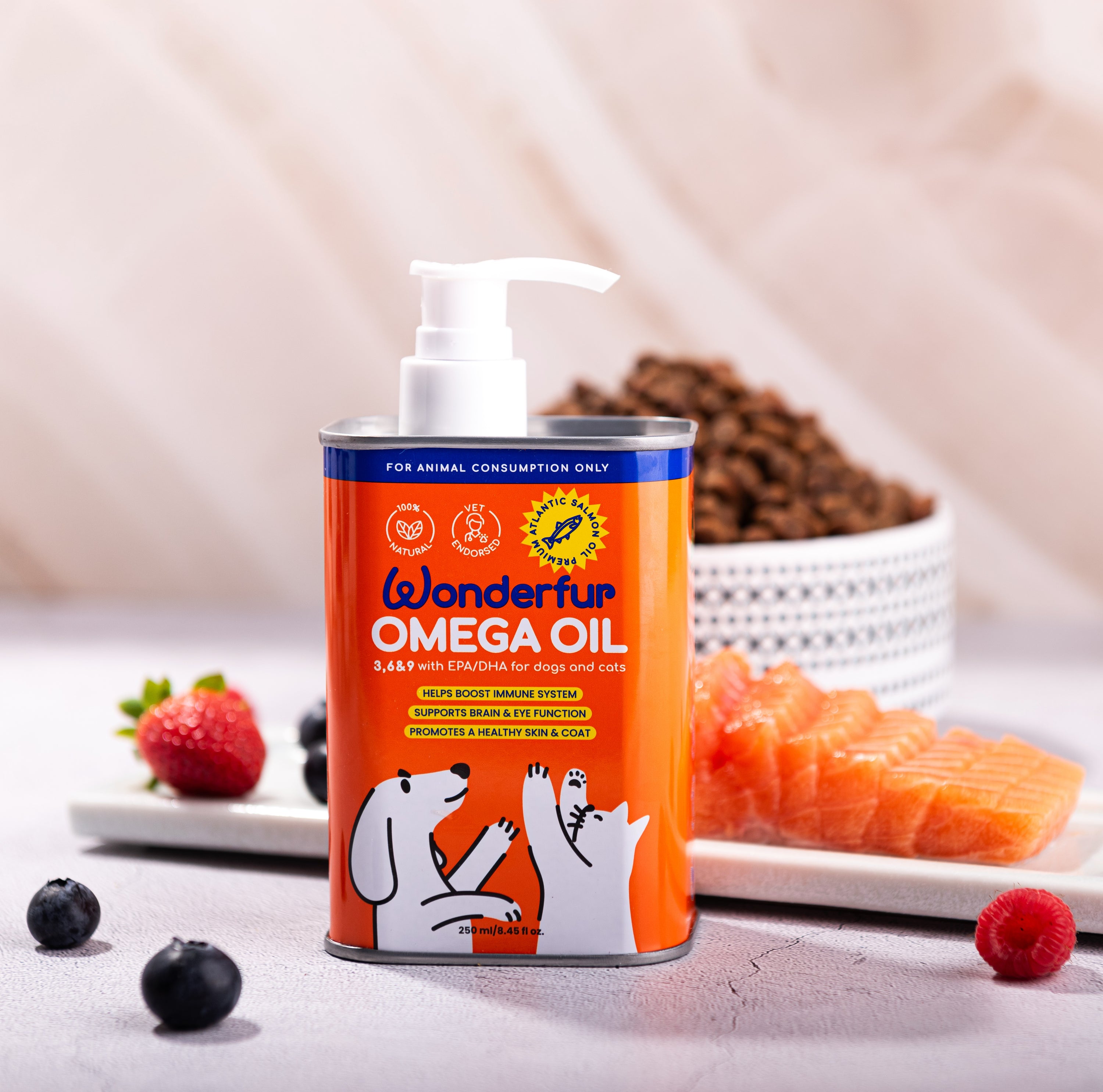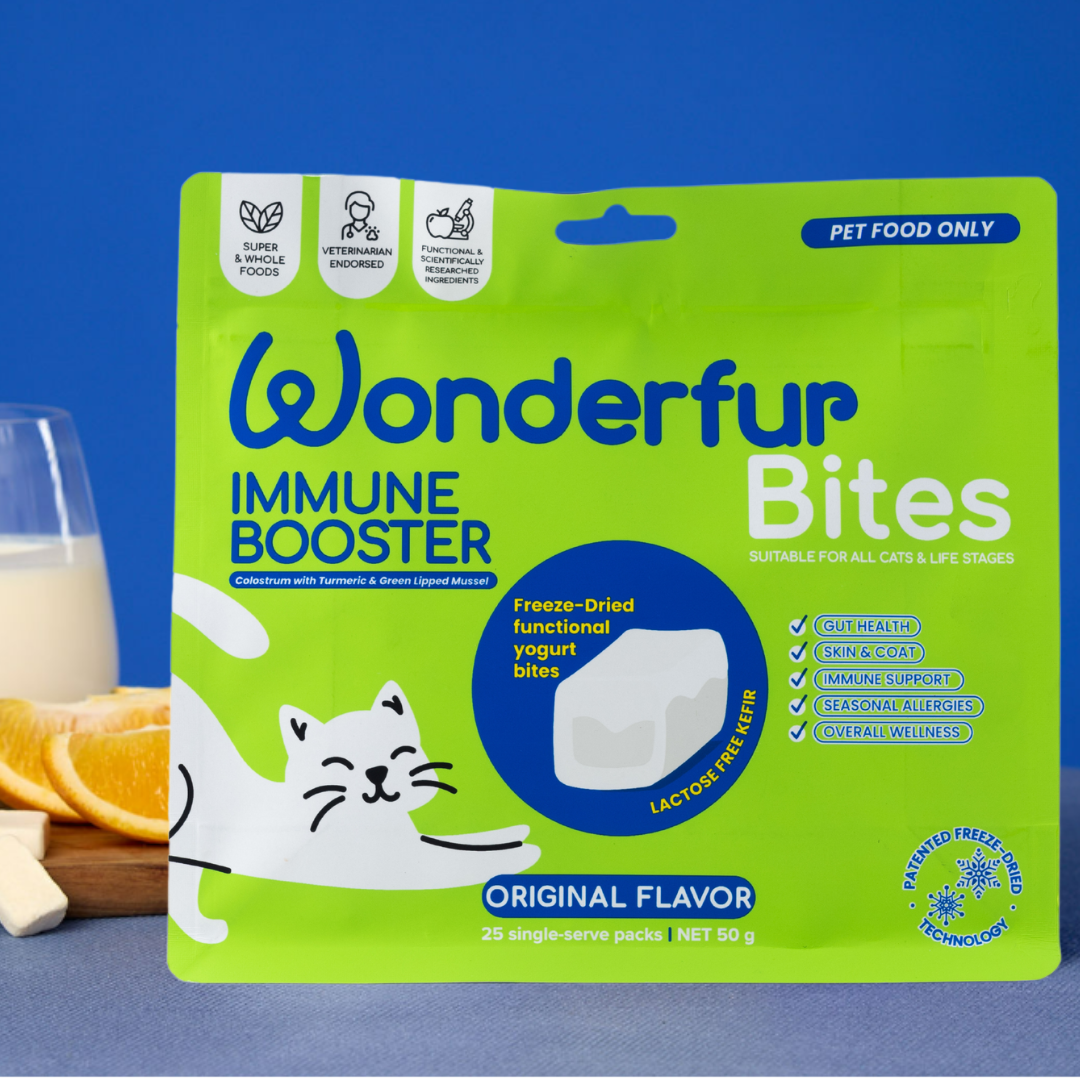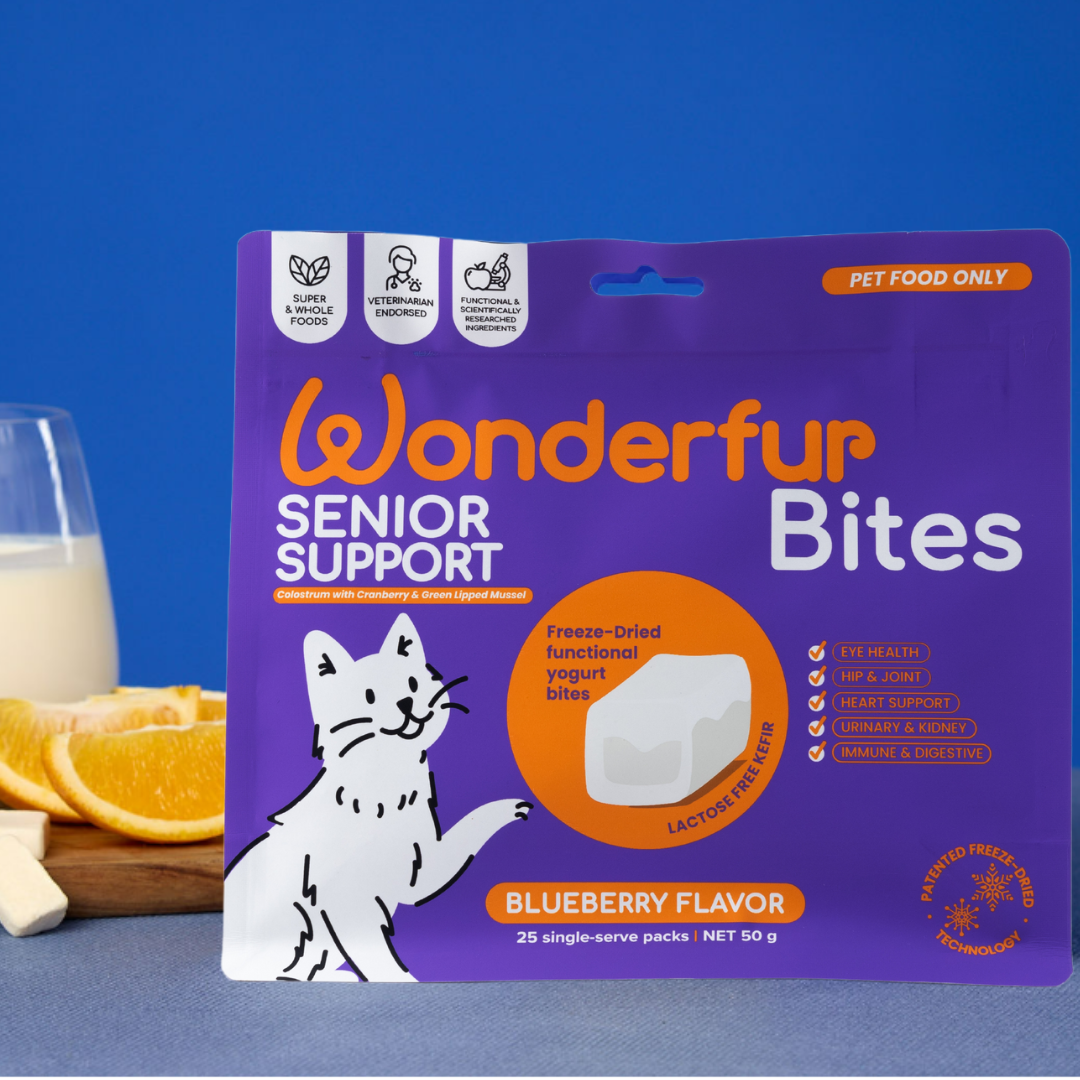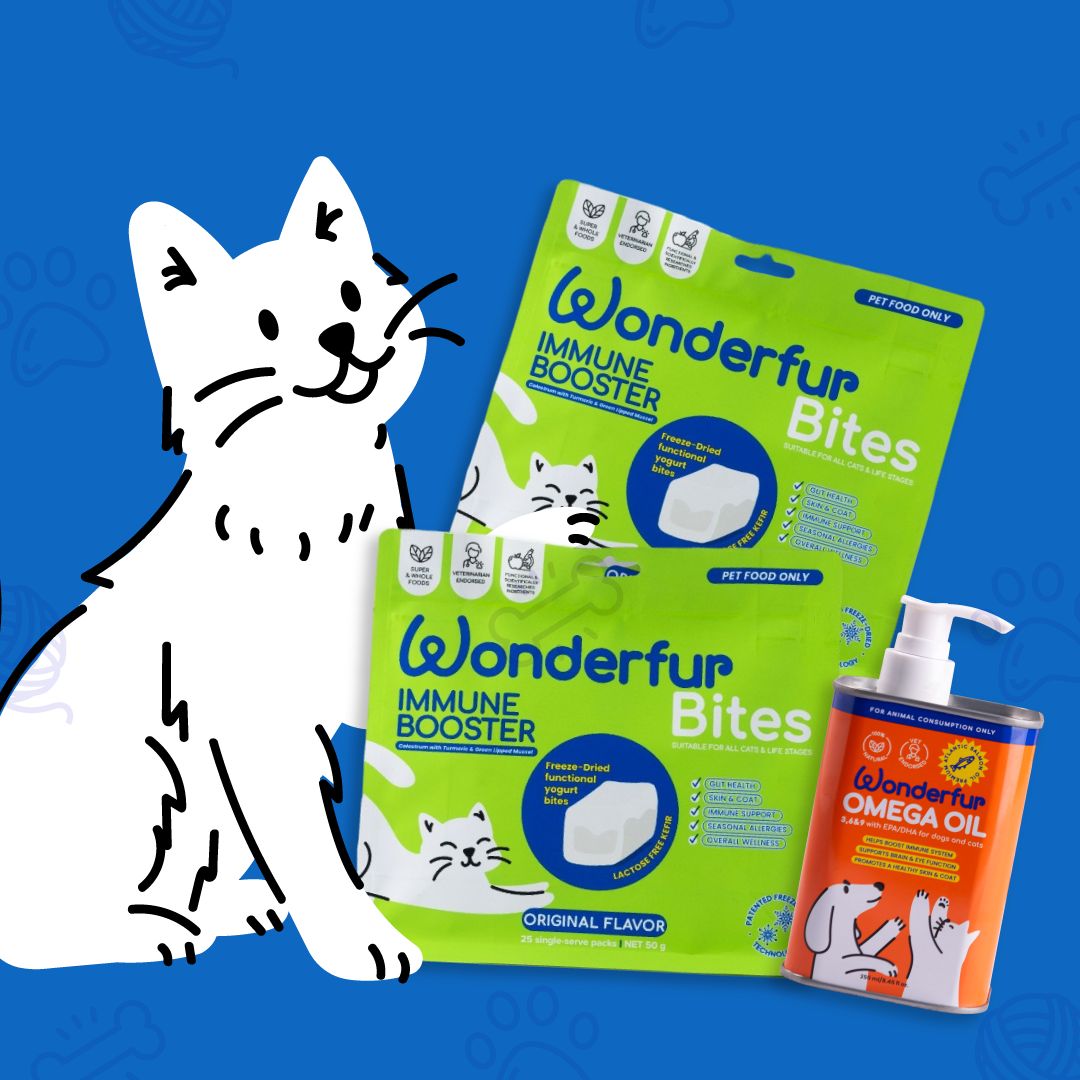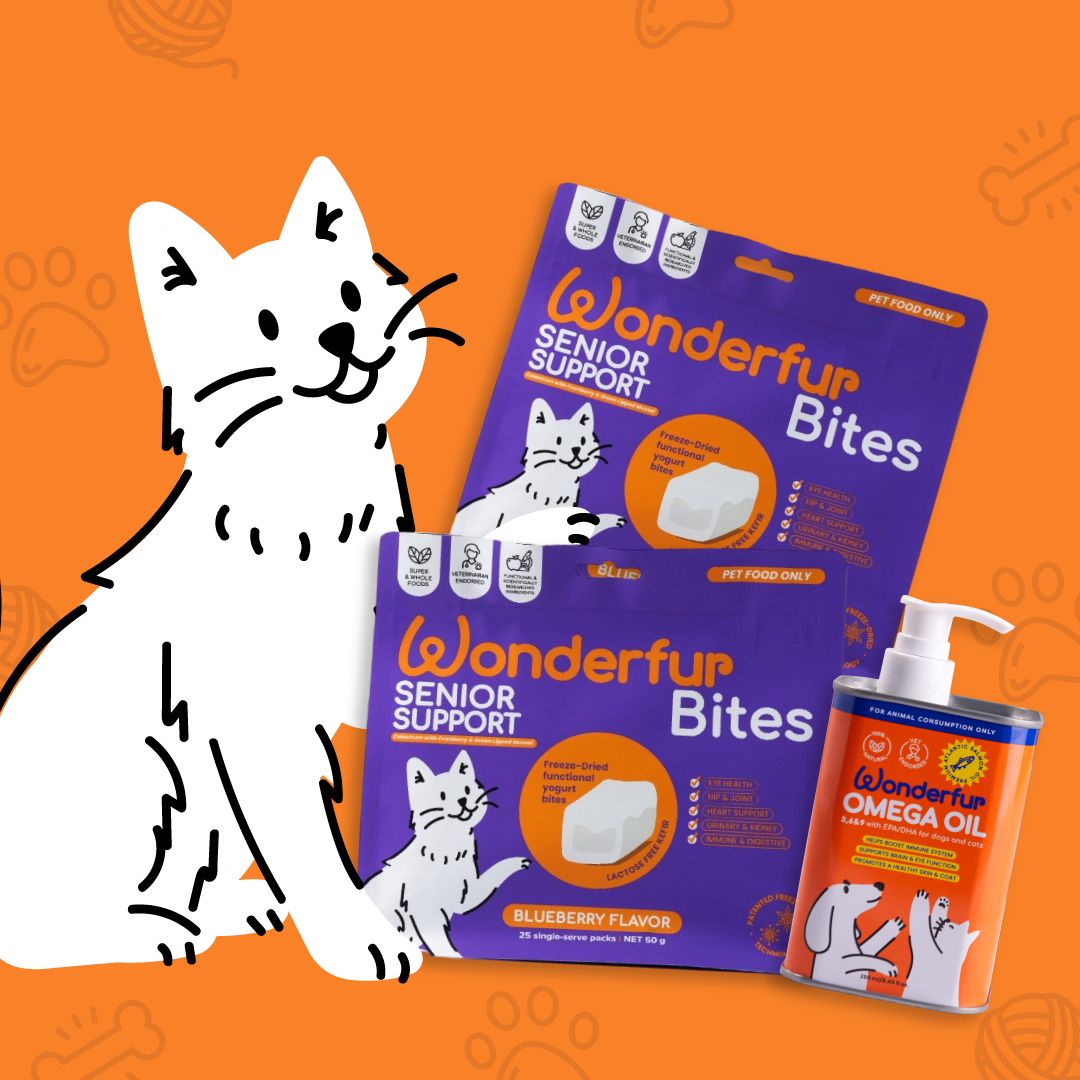Fish Oil For Cats: Benefits And Side Effects
Google “fish oil for cats” and you’ll get buried under articles, opinions, and big promises that solve everything — or nothing at all. Some say it is too good to be true, while others claim otherwise. So, the truth is somewhere in the middle. And it’s scientifically backed.
This blog is here to tell you what fish oil for cats is in simple terms, what it can do, and how it fits into your cat’s diet—provided your vet agrees it’s the right move.
What Is Fish Oil?
Fish oil is an all-natural oil derived from fatty fish like salmon, mackerel, sardines, and anchovies. It carries two major omega 3 for cats fatty acids – EPA (eicosapentaenoic acid) and DHA (docosahexaenoic acid) apart from omega 6 and 9, which contribute to good heart function, healthy skin, and brain development in human beings as well as animals.
These omega-3s may contribute to various areas of a cat’s health if provided in the right quantity.
How Fish Oil Can Contribute To Your Cat’s Health?
1. Skin and Coat Condition
While some cats experience dry, flaky skin others have a dull looking coat. Omega 3 for cats may help in improving skin moisture thereby making the coat shinier. This proves particularly beneficial in dry seasons or for cats with sensitive skin.
Vets often recommend cat supplements such as fish oils to cats that are constantly scratching themselves or shedding more than usual. It’s no silver bullet, but it can be one part of the regimen that helps manage skin related issues.
2. Joint Support For Older Cats
As cats get older, they often experience stiffness in their joints and tend to move around less. Fish oil has so much EPA and DHA, which is believed to support healthy joint movement in cats. Other research has indicated that healthy supplements for cats containing omega 3 may enhance mobility, especially among aged felines.
3. Supporting Heart Function
Omega 3 for cats is good for the heart of a cat. Specifically, this may aid in the functioning of the heart, especially in certain conditions where inflammatory support is required. This is not to cure heart disease but fish oil may be one aspect of a broad treatment approach recommended by vets.
4. Brain Development In Kittens
DHA plays an essential role in brain and eye development in growing kittens. Some veterinarians recommend such as fish oil for pregnant or nursing cats containing cat vitamins to help the growth of their kittens.
5. May Help With Certain Allergies
Some cats may develop allergies that result in itching, redness, or irritated skin. In such cases, fish oil could help soothe these flare-ups.
Are There Any Risks?
As with anything else, however, too much of a good thing isn’t always best. Here are a few things to be mindful of:
1. Dosing
Fish oil should be administered in the appropriate quantity to avoid undesired side effects. Feeding the pet with excess fish oil may result in digestive-related complications, for instance, diarrhea, or more severe conditions, such as disrupting blood clotting.
Compared to dogs, cats are relatively smaller, so the dosing often tends to be quite specific and strictly in accordance with what your veterinarian prescribes.
2. Quality Matters
Some fish oil products are not equal in quality. They may be low-quality oils heavy with metals or contain minimal levels of EPA and DHA. Make sure you pick healthy supplements for cats that have been purity-tested, made specifically for pets, and preferably one that’s been veterinarian developed or recommended.
Look for products that list ingredients and sourcing info. Brands that hide behind vague terms like "natural blend" without details are worth avoiding.
3. Storage and Shelf Life
Fish oil can go off if you don't store it in a cool, dark place. Check its expiry date, and if it smells off or stronger than usual, replace it.
What Do Vets Say?
Most vets agree that cat supplements like fish oil have a place in pet health—but it’s not for every cat. They often recommend it for specific health concerns like arthritis, skin issues, or heart problems. The key is using a proper, pet-safe product and only giving it under veterinary guidance.
Some vets will run tests to see if your cat would benefit from extra omega 3 for cats. Others might suggest adding it as a support when managing long-term conditions. Either way, they’ll want to make sure it fits your cat’s diet and doesn’t cause any problems.
Signs It Might Be Worth Asking Your Vet About Fish Oil
If your cat is:
-
Scratching a lot
-
Has flaky or irritated skin
-
Getting older and moving less
-
Diagnosed with joint or heart issues
-
A nursing mum or a growing kitten
Then it might be worth having a chat with your vet about whether fish oil could be helpful.
Selecting The Correct Fish Oil For Your Cat
If you're thinking about giving fish oil a go, here’s what to look for:
-
Made for cats
Don’t use human fish oil unless your vet says it’s okay.
-
Clearly labelled
Check the ingredients list and make sure EPA and DHA amounts are shown.
-
Third-party tested
This helps ensure it’s free from heavy metals and other nasties.
-
Vet-developed or vet-recommended
Products backed by science and made with animals in mind are generally safer.
Why Pet Owners Trust Wonderfur Omega Oil
If you're looking for a high-quality option, Wonderfur Omega Oil is a trusted choice. Made from 100% Tasmanian Atlantic Salmon, it’s designed to provide the perfect balance of omega 3 for cats to support their overall health.
-
99.95% pure salmon oil, 0.05% natural antioxidant
-
Eco-friendly packaging
-
Loved by even the fussiest cats
-
Backed by vet recommendations
Sandra K. B. said:
My cats seem to really like it and my dog also. I like that it can be squirted onto their food. Thank you.
How To Give It To Your Cat
Fish oil often comes as a liquid you can mix into your cat’s food. Some brands also offer capsules or soft chews, which might be easier for picky eaters.
Start slowly. A small amount at first can help your cat get used to the taste. Some cats love it. Others… not so much. If your cat refuses it altogether, talk to your vet about other options.
Support That Works Quietly Behind The Scenes!
You won’t always notice the difference straight away—but that doesn’t mean it’s not working. That’s the thing with fish oil.
When part of a well-rounded plan, Wonderfur Omega Oil contributes to small but steady changes in how your cat feels and moves. Less scratching. Easier mornings. More pep in their play.
With vet advice and a safe, clean product, it could be a quiet game-changer in your cat’s routine.
Check out our clean, pet-safe Wonderfur Omega Oil today!



